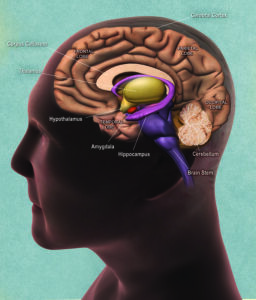 One of the simplest ways to improve your writing is to write about the sensory experiences of your characters.
One of the simplest ways to improve your writing is to write about the sensory experiences of your characters.
As writers work in a largely visual medium then (audio transcribing aside) it’s perfectly natural for writers to describe the world of their story and its characters in terms of only what they see. It’s a natural outcome as you stare at your prose to rely on visual descriptions alone. And it’s easy to forget to look beyond this, but use of the other senses can enrich our writing.
Referencing common sensory experiences – the smell of fresh spring rain, for instance, or the sound of a dog growling – evokes memories in readers who’ve experienced these events and deepens their immersion in the story. And this raises an interesting question. When it comes to our memories of sensory experiences, are some senses more closely connected with memory than others?
Involuntary Memory
The term Involuntary Memory was first coined by author Marcel Proust in his novel, À la Recherche du Temps Perdu, and is sometimes simply called Proustian Memory, or the Proust Effect. It emerged from a passage of text where the novel’s protagonist dunks a madeleine in a cup of tea, and experiences an involuntary memory. In Proust’s passage, the taste of cake and tea commingle and spark a long-forgotten memory in the character, a memory of doing the exact same thing as a child.
As writers we’re more concerned with conventional, voluntary memory, but Proustian involuntary memory shows the strong link between memories – even those we cannot recall without a sensory reminder – and our sensory systems. We can use this to our advantage, and add greater depth to our writing.
Senses and Memory
 Recent research has shown that of all our senses, smell may be the most closely tied to memory. While researchers have previously noted the strong link between the olfactory system and memory, a recent study has shed more light on why this is the case. In essence, the olfactory system has a more direct connection to the hippocampus region of our brains than our other senses. As the hippocampus is heavily involved in encoding memories, the olfactory system’s “shortcut” to the hippocampus explains why smell is so closely tied to memory.
Recent research has shown that of all our senses, smell may be the most closely tied to memory. While researchers have previously noted the strong link between the olfactory system and memory, a recent study has shed more light on why this is the case. In essence, the olfactory system has a more direct connection to the hippocampus region of our brains than our other senses. As the hippocampus is heavily involved in encoding memories, the olfactory system’s “shortcut” to the hippocampus explains why smell is so closely tied to memory.
A Sense of Space
In addition to the traditional human senses – sight, sound, smell, touch, taste – there’s one other that you might find useful. Proprioception – also known as kinaesthesia – is the body’s sense of itself in space, and is sometimes thought of as the sixth sense. Someone with poor proprioception, for example, might find themselves misjudging distances when in motion and clip doorframes with their shoulder or frequently stub their toe on objects. At a stretch, you might argue the vertiginous feeling of looking down from a great height might come under this umbrella term. And for writers of Fantasy, there’s nothing to stop your characters from having other senses that don’t exist in the real world.
Sensory Writing
The strong link between the olfactory system and human memory is useful to know, but shouldn’t be taken as a directive to rely exclusively on scent related similes and metaphors in our writing. After all, while it might be possible to write prose using almost entirely scent-related comparisons, the result would likely be unreadable. It would almost certainly be described as a stinker.
 Bringing other senses into writing, however, can add depth. Going beyond how something looks into how it might sound, smell, or feel to the touch can improve both the writing and the reader’s experience. Writing that there were leaves on the ground under the protagonist’s feet is one thing, but describing the sound of dry leaves cracking underfoot takes this a step further.
Bringing other senses into writing, however, can add depth. Going beyond how something looks into how it might sound, smell, or feel to the touch can improve both the writing and the reader’s experience. Writing that there were leaves on the ground under the protagonist’s feet is one thing, but describing the sound of dry leaves cracking underfoot takes this a step further.
Writing great characters is one part of the story process, but adding a dash of other sensory experiences to our prose is a great way to elevate it to another level. You can try this for yourself by writing a short piece of prose using only visual descriptions, then re-writing it, bringing in other senses. Compare the two versions and see which you prefer. You should soon see the value of using senses to add richness to your writing.




Leave A Comment